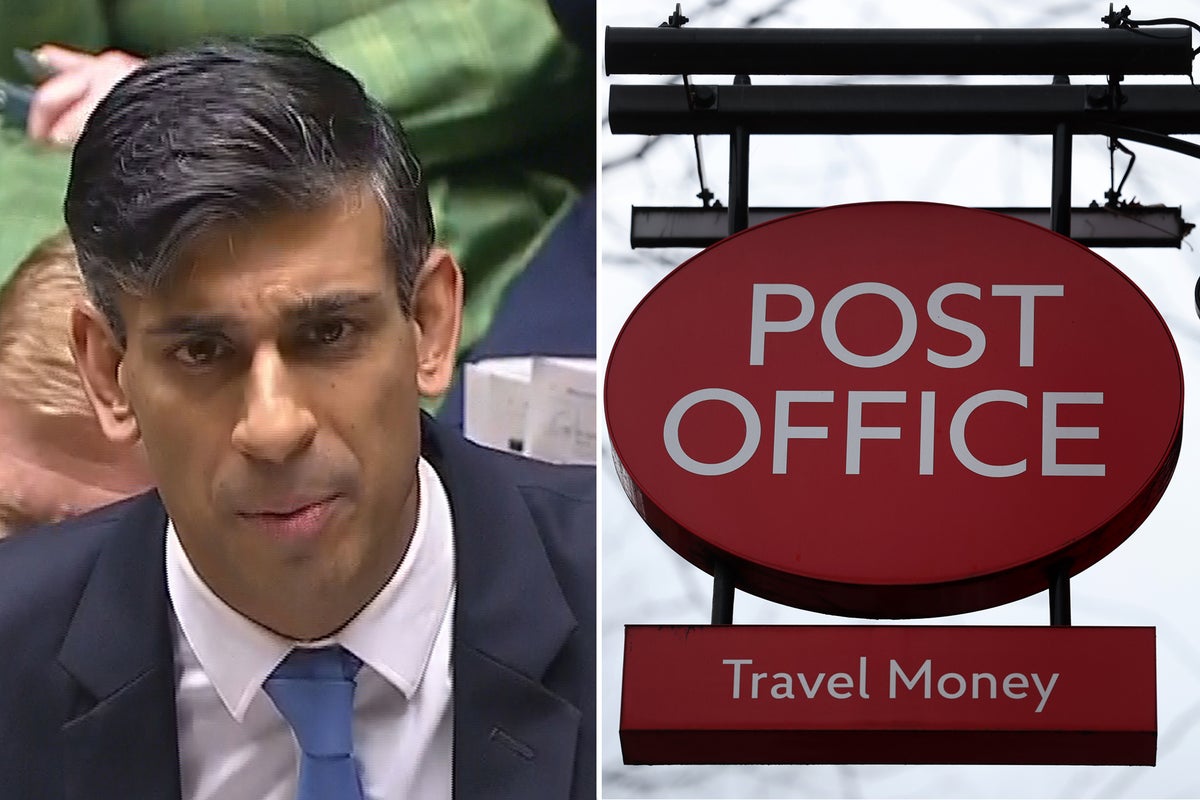
After weeks of mounting speculation about how the government intends to respond to the Horizon Post Office scandal, Rishi Sunak has announced the government will introduce legislation to exonerate 700 victims accused of theft and fraud.
The prime minister announced the legislation on Wednesday, as well as the introduction of a new upfront payment of £75,000 in compensation to affected victims, stating that the government will “make sure that the truth comes to light”.
The announcement follows calls for justice from politicians and the public following the release of ITV Drama Mr Bates vs. The Post Office, which publicised the plight of the hundreds of postmasters wrongly prosecuted for theft, fraud and false accounting as a result of errors in the Post Office’s Horizon computer system.
Here, we take a look at everything you need to know about the new legislation:
What will the law do?
Public anger over the scandal has been growing since the release of ITV drama “Mr Bates vs The Post Office”— (ITV)
Postal minister Kevin Hollinrake set out some of the details of how the government intends to quash at least 700 convictions of Post Office staff caught up in the Horizon scandal.
Mr Hollinrake told MPs that the law is “unprecedented” but that the situation requires “exceptional circumstances” which would see victims exonerated within the year.
The details of the legislation have not yet been published, but we can expect the bill “within weeks” according to the prime minister’s spokesperson.
In order for victims to claim the upfront offer of £75,000 in compensation, subpostmasters must sign a statement to the effect that they did not commit the crimes of which they are accused. Anyone found to have signed it untruthfully could be subject to prosecution.
How will this be received?
Victims have long been campaigning for exoneration, pointing to the reputational, emotional and mental trauma they experienced during this period.
Though calls for mass exoneration have come from across the political divide, legal experts have raised concerns that it could interfere with the constitutional independence of courts and judges. Former Attorney General Dominic Grieve told the BBC earlier this week that exonerations are “in a sense a parliamentary interference”.
However, those in support of the move have argued that since all the cases for wrongful conviction rest on the allegation that the Post Office deliberately hid the truth about issues within the Horizon system, the grounds for a one-off exoneration is strong enough to avoid further constitutional challenges.
When will it be introduced?
The government has not yet announced a timetable for the introduction of the legislation but Mr Hollinrake told MPs on Wednesday it would be introduced “within weeks”
Mr Hollinrake also confirmed that the UK government is now liaising with devolved authorities in Scotland and Northern Ireland about the next steps.
Will the legislation encounter opposition?
This issue has transcended party politics and is likely to receive broad support across parliament.
The leader of the opposition Sir Keir Starmer has also given his support to the principle of the legislation, calling the scandal a huge injustice.
There may be some dispute and debate over the minor details within the bill, such as the timetable for exoneration, the amount of compensation offered and whether any follow-up action will be taken against Fujitsu and the Post Office for their role in the scanda, as these details are yet to be revealed.
Mr Hollinrake has also indicated that the blanket legislation may result in some who are guilty having their convictions overturned.
He told MPs: “I can not tell the House that all those prosecuted were indeed innocent… without retrying every case, we can not know.”
Conservative former minister Sir David Davis raised concerns that some of the victims may want an “individual exoneration rather than a grand pardon, because they are understandably concerned of being bracketed with a very small number of people who will actually not be innocent.”
Some MPs may also be concerned that the bill could create a precedent for government interference with the judiciary. As such, eagle-eyed MPs will expect a clear rationale within the legislation for the exceptional nature of its existence.
However, these details are unlikely to prevent the legislation becoming law and are most likely to be ironed around over the next couple of weeks and during parliamentary debates.







